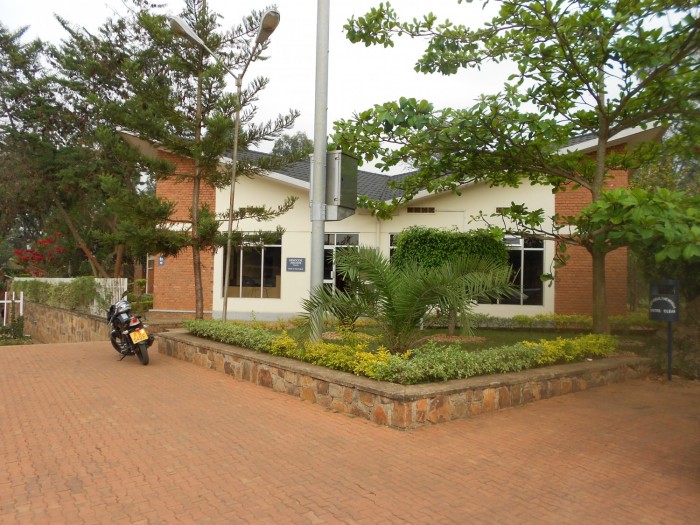
11/03/2013, by CLAS
Can positive changes result from genocide? PhD student Caroline Williamson tells us about her research
Research carried out in Nottingham University’s Department of French and Francophone Studies found inspiring positive changes among Rwandan women, as PhD student Caroline Williamson explains.
Funded by an AHRC Collaborative Doctoral Award, Caroline worked in Rwanda for a year with the Nottinghamshire-based NGO the Aegis Trust, which campaigns against genocide and crimes against humanity, and runs the Kigali Genocide Memorial Centre.

The Kigali Genocide Memorial Centre.
Above: memorial sculptures at the centre, by the Rwandan artist Laurent Hategekimana.
Her study examined cases of posttraumatic growth – positive changes following trauma – in women’s genocide testimonies and found that survivors had gained an enhanced sense of self-worth, reliance and efficacy.
The genocide created a massive gender imbalance, with women making up a much larger proportion of the population than men. While this placed an enormous burden on their shoulders, it also opened up new opportunities for women as there were simply not enough men to carry out traditionally male duties. This demographic shift created spaces for women in the workplace, in politics, in civil society as well as other previously male dominated areas of society. It also resulted in these women gaining a new sense of empowerment, as one survivor told interviewers, women had to find new strength as they did not have the help of men: ‘Before, raising my kids alone without my husband or without a job would have been inconceivable… but I have managed.’
Despite gaining an enhanced sense of self-efficacy and learning new skills, however, the stigma surrounding survivors continues to hold them back. It was found that society in Rwanda had become increasingly focused on the individual with less cooperation than had been the case before. This shift was reflected in everyday language – where previously they would have used the first person plural, survivors described their experiences after the genocide in the first person singular. But many lost their entire families: they went from being a ‘we’ to an ‘I’ in a short space of time.
Nevertheless, the women interviewed saw themselves as stronger after living through the genocide. They lost husbands, sons, brothers and fathers. Often they were subjected to horrific sexual attacks. But these women came through the experience with a raised sense of self-reliance.
Survivors also inspired each other. ‘I saw people who survived unexpectedly’, one woman said. ‘They tried to kill them but they refused to die. They may have lost an eye, a nose or a tongue yet still they survived.’
Caroline’s project — linked to a collaboration between The Aegis Trust and Dr Nicki Hitchcott of the Department of French and Francophone Studies — will increase understanding of the genocide. As Dr Hitchcott explained: ‘Caroline’s work at Genocide Archive Rwanda will help ensure that the voices of women survivors of the 1994 genocide are heard around the world.’
No comments yet, fill out a comment to be the first

Leave a Reply